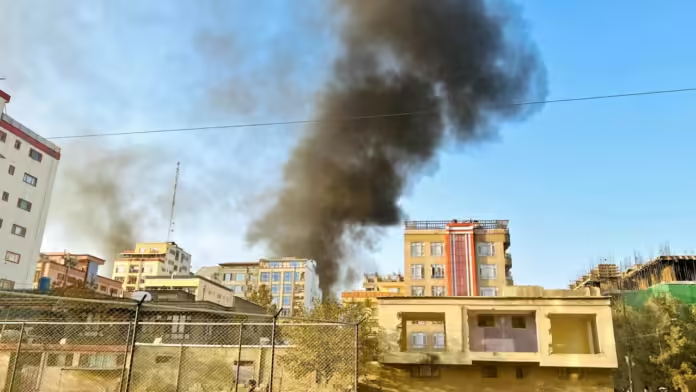Pakistan and Afghanistan have agreed to a 48-Hour Border Ceasefire along their volatile border
In a landmark and unprecedented step, Afghanistan and Pakistan have agreed on a 48-hour ceasefire along their troubled frontier. The ad-hoc truce, which started at 6:00 PM on Wednesday, was confirmed by the Ministry of Foreign Affairs of Pakistan after a request from the Afghan Taliban government. The short-term ceasefire is intended to grant both countries a much-needed respite after days of intensifying cross-border skirmishes that left communities in a state of unease and strained diplomatic relations.
The ceasefire is a fleeting but pivotal moment in the long and multifaceted history between the two neighbors. Although tensions have erupted many times regarding border control and security issues, this accord may represent a rare chance to reduce tensions and find a path towards durable peace.
How the Ceasefire Came About
In official communication, the ceasefire was mutually agreed upon after emergency channels of communication were opened between Islamabad and Kabul. The Afghan Taliban government reportedly requested the ceasefire in order to avert further escalation of the situation at the border. Pakistan’s Foreign Office, as a response, accepted the request and reaffirmed its efforts toward bringing stability and the non-harm of civilians.
Sources in the security establishment indicate that isolated instances of firing and troop deployment over the past few days had raised fears of a wider war. The ceasefire is thus perceived as a confidence-building measure, one aimed at defusing tempers and opening avenues for talks.
The Historical Context: A Border of Both Connection and Conflict
The Pakistan-Afghanistan border, commonly called the Durand Line, has been a source of disagreement for centuries. Over 2,600 kilometers in length, the border separates tribes, families, and cultures that share centuries-long histories. Even with shared religion, commerce, and heritage, the two countries have frequently found it difficult to come together on **security, border control, and counterterrorism.
Pakistan, in turn, has indicted Afghan-based militant groups for cross-border attacks and infiltration over the years, while the Afghan side has blamed Pakistan for its tight border policies. The ceasefire then is not simply a temporary tactical breakthrough—it represents a slight hope that deep scars may be healed through diplomacy rather than bullets.
Human Cost and the Hope for Calm
Amidst political grandstanding and military threats, the border communities suffer the most. People who live on the border have experienced displacement, disruption in trade, and fear of attacks for years. The current 48-hour ceasefire gives these civilians a momentary relief—an interval during which daily life could become somewhat normal again.
Local media on both sides of the border reported that people welcomed the break, hoping it could be more than just two days. “We just want peace,” a Chaman trader, one of the most important crossing points between the two countries, said. “Our businesses rely on stability, not on bullets.”
Wider negotiations between Afghanistan and Pakistan
Though a 48-hour ceasefire might appear fleeting, analysts think that it could set the stage for wider negotiations between Afghanistan and Pakistan. Diplomatic onlookers say that long-term interaction and trust-building exercises must be undertaken to avoid future rounds of violence.
But the ultimate test lies after the ceasefire expires. Whether or not both sides will be able to keep their cool and employ this window to resolve underlying tensions is questionable. Meanwhile, the lull in fighting presents a fleeting but precious chance for peace in an area that had often seemed to be beyond the horizon.
The Pakistan-Afghanistan ceasefire is a reminder that even amidst centuries of acrimony, diplomacy and dialogue are still far more effective. Although short-lived, this 48-hour truce is more than silence between the shots—it is the hope that two frontier nations can learn to live in harmony.
As time counts down on this tenuous accord, the world waits anxiously, hoping that this brief respite can bring more lasting peace to one of South Asia’s most volatile borders.
Visit Pakistan Updates for the latest news and in-depth analysis on this unfolding story.




